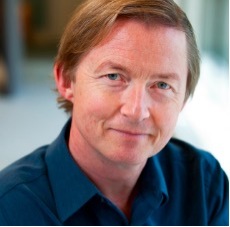Sanders Whiting
1. What are you reading?
I’m currently reading Vocology by Titze/Verdolini. I’m fascinated by Semi-Occluded Vocal Tract work. I’m also reading articles on Polyvagal Theory which relate to students’ comfort and receptivity when working with their bodies.
2. Where and what do you teach?
I teach privately in my studio and in the last year have offered workshops in Vancouver, Toronto and Red Deer College. I instruct voice in the Musical Theatre Program at Capilano University and teach Voice and Presentation Skills for faculty at Simon Fraser University. My teaching base is Estill Voice Training which is a voice model used to teach many different voice quality set-ups depending on genre and students needs. I also draw on the work of Richard Miller and Kristin Linklater for a variety of vocal tools. Currently my most exciting professional development experiences are on-going lessons with NYC-based EVT course instructors Tom Burke (who is also an SLP) and Robert Sussuma who is also a certified Feldenkrais practitioner.
3. What are you listening to these days?
I’m a little obsessed with “Twang” lately. Today I’m listening to Kristin Chenoweth, Andrew Rannells and Värttinä.
4. What are your favourite websites, mobile tools, favourite singers?
First of all are the digital recorders on students’ cell phones for both recording lessons and for students to understand what sounds they’re making when practicing. I use spectrographic software in the classroom. It helps students see harmonics and gives useful real-time feedback regarding onsets, breath heavy sound, vocal fold tension and sound quality. Like many people, my tastes are varied. I like hearing individuality and emotion in the voice. My likes go from Jussi Björling to Tom Waits, Dolly and Adele.
5. Do you have a particular repertoire expertise and suggestions for members to explore?
My particular expertise is biomechanical function and at the other end of the spectrum, the emotional connection of the actor based in my actor training which comes from practitioner/theorists Stanislavski and Lee Strasberg.
I feel teachers are all working towards the same general goals as teachers. Science is helping the teaching world unify its understanding of how the voice works. My strongest recommendation is to keep curious and hungry about new findings and related disciplines
6. What are your recent and upcoming performances?
I really miss performing and am planning on getting back to it soon. Sound familiar? My last role in a professional musical was Mimi, or A Poisoner’s Comedy with Vancouver’s Touchstone Theatre.
7. What is your experience with NATS?
I am new to NATS and was impressed by the welcoming friendly quality at the annual meeting.
8. What are your professional affiliations?
Canadian Actors’ Equity, ACTRA, Estill International and of course, NATS.
